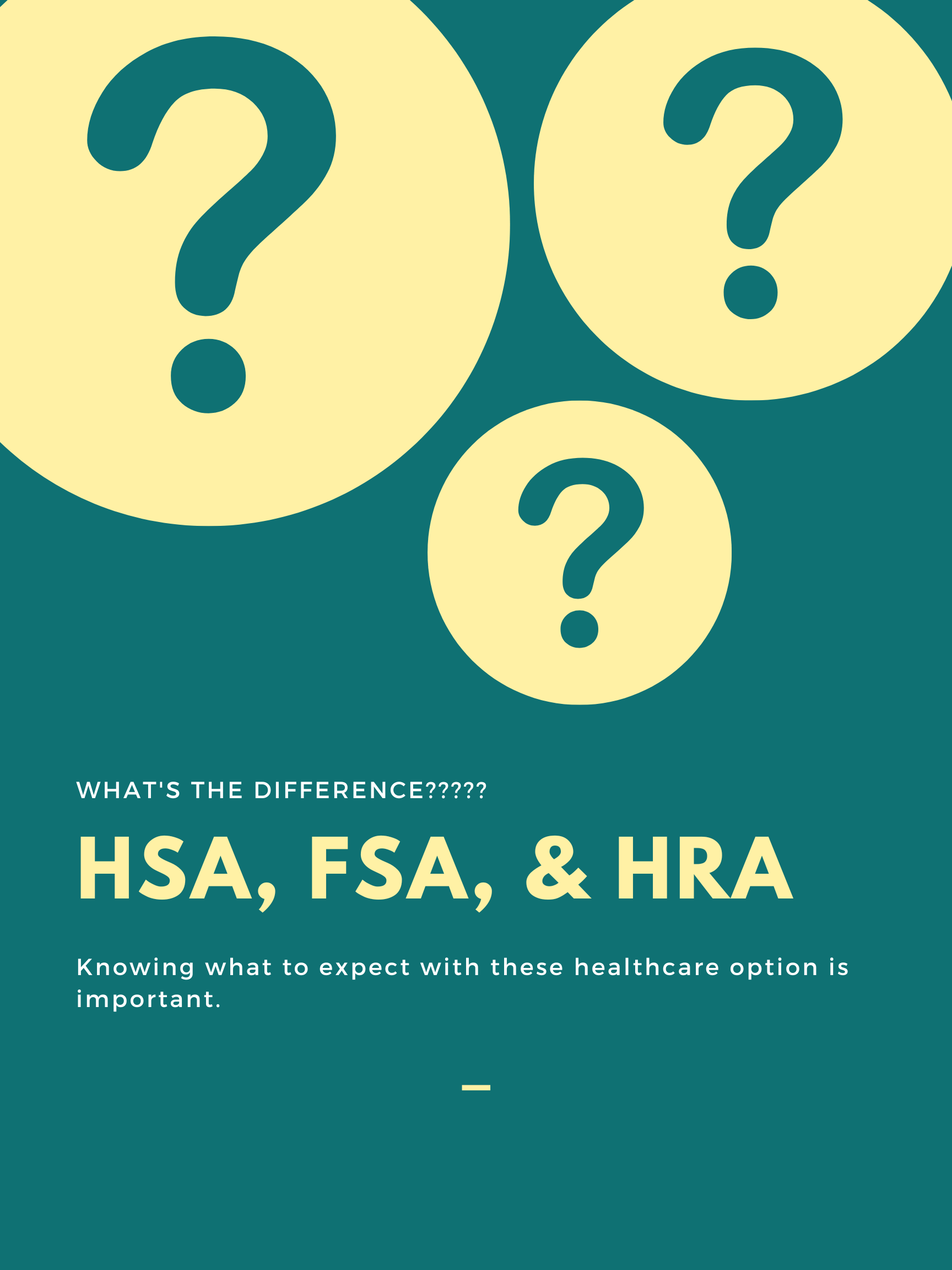HSA, FSA, & HRA - Identifying the Difference
July 18, 2023
What the different between HSA, FSA, & HRA???

Health Savings Account
- This is essentially a debit card for health care expenses; normally administered by an employee
- The patient and/or their employer may contribute pre-taxed money into this account to go towards qualifying care-related expenses.
- Only certain types of coverage allow a supplemental HSA.
- The patient should have a card for their HSA, and they have ownership over this account. It’s not directly connected to the payer they’re covered by—it’s entirely supplemental to their benefits.
- You’ll charge this card just like you would a debit or credit card for expenses not paid by their insurance, including copayments, co-insurance and deductibles.
Flexible Spend Account
- Owned by the patient’s employer but are held in the client’s name—this is what distinguishes this type of an account from an HSA.
- Both parties can contribute pre-taxed dollars to the account.
- This option has more flexibility about the type of coverage a client can have. The plan doesn’t have to meet specific qualifications, but the expenses must also be health related. FSA vendors will have a list of applicable expenses.
- The patient should have an FSA card that can be charged for expenses not covered by their insurance, including copayments, co-insurance and deductibles.
Health Reimbursement Account
- Your patient won’t have a card that is chargeable for services.
- The account generally must be integrated with the patient’s insurer & reimbursements will be issued only after services have been billed and processed.
- Reimbursement payments can be made to the patient or directly to you, the provider.
- The account will be held in the client’s name, but deposits into this account are made only by the client’s Employer.
- Clients may need to submit invoices and EOBs to their Human Resources department in order to be reimbursed for out-of-pocket expenses.
Knowing how to utilize their coverage is huge deal when it comes to being reimbursed by your patient for the services your render. This is why insurance verification is important prior to seeing patients, to have to best knowledge of their policy.
